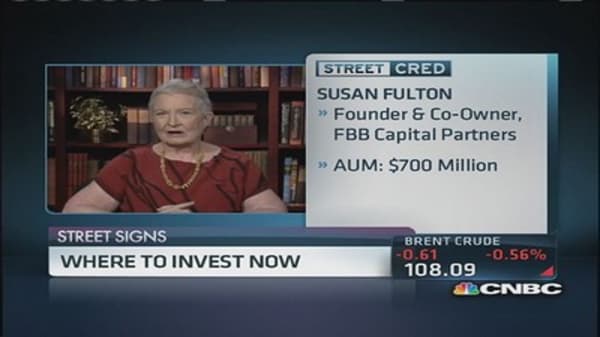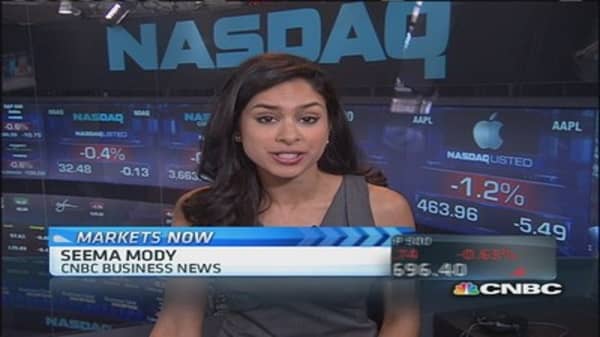Atlanta Fed president Dennis Lockhart said the initial taper in the central bank's asset purchase program could start at any of the three remaining Federal Open Market Committee meetings this year. Lockhart added he was not disappointed by the July unemployment report and said he'll be watching data closely for "the next few weeks" to see if the economy is on track for faster growth.
Chicago Fed President Charles Evans also echoed Lockhart's earlier comments, saying the central bank will likely reduce its stimulus program later this year. Evans is typically among the most dovish policymakers.
(Read more: Fed outlier! No taper before year-end: Strategist)
Meanwhile, the government auctioned $32 billion in 3-year notes at a high yield of 0.631 percent. The bid-to-cover ratio, an indicator of demand, was 3.21, versus a recent average of 3.44.
Among earnings, Michael Kors rallied after the luxury retailer posted earnings that nearly doubled, thanks to gains in Europe and roll-out of shops within department stores. And Fossil surged to lead the S&P 500 gainers after the fashion accessory maker posted better-than-expected earnings and lifted its full-year outlook.
Meanwhile, American Eagle Outfitters tumbled after the teen apparel retailer said its second-quarter profit will likely be less than half of what Wall Street was expecting, citing weak sales and lower margins. Rivals Abercrombie & Fitch and Aeropostale also declined.
Disney, 21st Century Fox, Zillow and Office Max are among notable companies slated to post results after the closing bell.
So far, nearly 85 percent of S&P 500 companies have reported results this quarter, with 67 percent of companies topping earnings expectations and 55 percent beating revenue forecasts, according to the latest data from Thomson Reuters. If all remaining companies report earnings in line with estimates, earnings will be up 4.3 percent from last year's second quarter.
Bank of America traded lower after the U.S. Justice Department said it had filed a civil lawsuit against the financial giant for what government lawyers said was a fraud on investors involving $850 million of residential mortgage-backed securities.
Washington Post soared after Amazon.com founder Jeff Bezos agreed to buy the publishing company's newspaper assets for $250 million.
IBM slipped after Credit Suisse downgraded the tech giant to "underperform" from "neutral" and cut its price target on the Dow component to $175 from $200, saying organic growth would be challenging in the future.
On the economic front, the U.S. trade deficit fell 22.4 percent to $34.2 billion in June, narrowing to its lowest level in more than 3-1/2 years, according to the Commerce Department. Economists polled by Reuters had expected the trade deficit to narrow to $43.5 billion.





